Elon Musk Thinks You're In The Matrix Right Now - Pick Your Side In The Simulation Argument (featuring new author @oliverb)
In an interview at the Code Conference 2016, Elon Musk said:
"The odds we're in base reality is one in billions."
This was in answer to a question about where he stood on the Simulation Argument. [1]
If you haven't come across this argument before, then you have missed one of the greatest movies of all time, The Matrix. Oh, you did see that movie? Then you're familiar with the conundrum; are we in the real universe, or a simulation?
Musk is betting on the simulation.
Upon reading his words, most of us thought either 'meh', 'cool' or 'hungry, need bacon', and then continued sending birthday posts on Facebook (or stood up and headed to the kitchen).
But hold up... don't you think the possibility that we're in a video game is worth a five minute inspection? At the very least, you need enough information to discard the notion so you can sleep easy at night. Alternatively you might just need enough of a shock to...
Wake up, Neo.
Before I continue I want to say this:
I'm aware that The Matrix has become an overused metaphor on the internet, especially in conspiracy and new age circles. However, I hope you'll humour me in my use of it here since we're actually not talking metaphorically at all, and that's the point.
Where did this idea originate?
The idea that our universe might not be 'real' is an ancient philosophical concept dating back to the Vedic texts and Indian spirituality where reality is described as "that which exists, but is constantly changing and thus is spiritually unreal." [2]
There are also lots of other occurrences of the same general concept throughout history, such as the idea that we're all 'brain's in a vat' but let's not linger on those.
One recent event has slapped mankind in the face with this possibility more than anything else:
The development of computers and games.
It's from that viewpoint that Musk's logic ran. His thought experiment went something like this:
- Look at the rate that our computer power is increasing.
- Consider the 3D, almost photo realistic video games we have right now.
- Add in the coming of age of virtual reality.
- Plus a pinch of The Sims and WOW.
- Now project all this forward 100, 1,000 or even 100,000 years.
And then answer this question:
Will future generations be capable of creating a perfect simulation of reality?
This is starting to get a little serious... isn't it.
Let's all take a breath and look at this gif, to remind ourselves that humour is our greatest defence against 'reality'.
The Simulation Argument (Bostrom's Trilemma)
Elon Musk is a fan of the work of a Philosopher at the University of Oxford named Nick Bostrom.
Bostrom is famous for his explorations of existential threats to mankind. In 2003 he created the simulation argument in which he argues that one of three propositions must be true.
Here are Bostrom's three propositions:
- Intelligent civilisations almost never reach the stage where they're capable of creating an ancestor simulation.
- Civilizations who become capable of creating an ancestor simulation are almost never interested in creating them.
- We're in a simulation.
I should point out as well, that Bostrom proposes that we ourselves might be simulated, rather than real and asleep as in The Matrix. A humbling thought. I for one wish my creator had clicked + on the height button just a little more when deciding on my specs... but who cares, right?
I'm not going to attempt to debate all the propositions here, I'll leave that for you to nut out in the comments. I actually can't wait to hear your thoughts and arguments because I find this whole concept fascinating and (oddly) life-affirming.
So, where do you stand on this and why?
I'm going with number 2 (call me an optimist)
Closing thought
To be honest (as well as a little cheeky), it's not hard to understand why Elon Musk might believe that he's in a video game. Presumably, in his game, the aim is to:
- Start from nothing
- Become the most loved entrepreneur on the planet
- Save the world from fossil fuelled destruction
- Colonise Mars.
That sounds like a pretty fun game... and one he's well on the way to completing.
But if I'd been allowed to ask one question at Code Conference 2016, it would have been this:
"Elon, given that you believe you're in a video game, do you think it's a multiplayer?"
--
--
Sources
[1] Elon Musk's Interview at Code Conference 2016 (you have to watch this).
[2] M Hiriyanna (2000), The Essentials of Indian Philosophy, Motilal Banarsidass, ISBN 978-8120813304, pp. 25, 160-161
[3] Nick Bostrom's talk on his simulation argument.
[4] Wikipedia (I know, I know)
@gavvet features authors to promote new authors and a diversity of content. All STEEM Dollars for this post go to the featured author
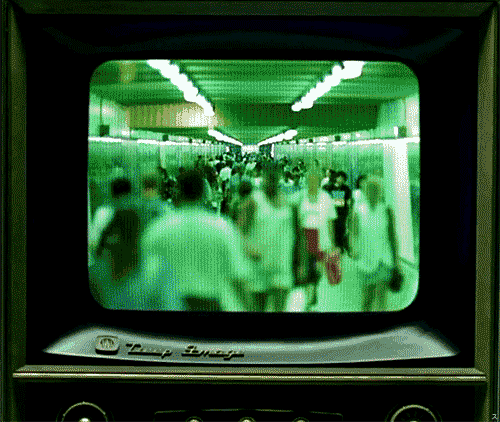
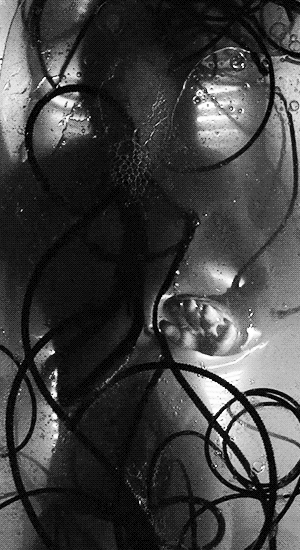
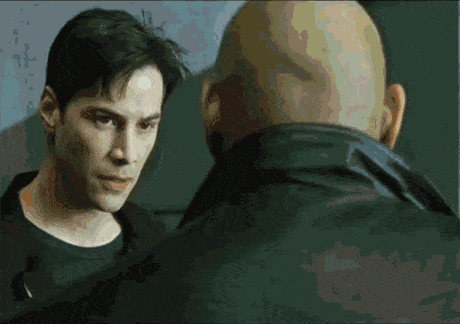
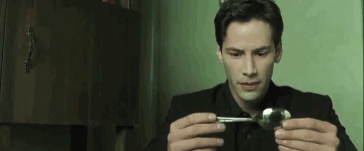
Holographic universe theory has indeed been around for a long time, and there are different definitions of what exactly constitutes a simulation or reality, so to speak. Ancient texts specifically mentioned the seemingly ethereal nature of the world we live in, with many references to "other dimensions" as being accessible through meditation and and even the use of psychedelics.
All of these are personal experiences being shared through language, a flawed means of communication. Hence the grave misunderstandings that we see everyday associated with the word "god" or "religion."
I believe we can observe patterns repeating through the different magnitudes of scale that we can observe reality through.
For example, we see the same spirals that form certain galaxies, in relatively tiny objects such as seashells. There is interconnectedness all around us.
With that being said, the matrix allegory i think specifically refers to the idea that reality is not at all what it seems and that many people are in a "slumber" of sorts.
For those who have woken up, they would describe their former existence similar to being "in another dimension". All very subjective terms. But when you can juxtapose many different states of consciousness, and analyse them relative to each other like this:
Sobriety - dreaming - intoxication - hallucinations (from sickness or from drugs) - meditation - the "zone" or "it"
There are even more to add, but the point i'm trying to make is that even during everyday life, we transition through different phases of consciousness. This in turn means that our definition of reality is constantly in flux. If you then apply the logic that if we are in control of our consciousness, we can essentially do anything we put our minds to, this becomes similar to the idea of being in a video game.
The path to truth is not a straight line. It is a spiral where you return to previous points with a deeper understanding of truth.
Very well said. you should consider posting in #philosophy.
I would add that there is a major gap between understanding the truth (on an intellectual level) and actually knowing the truth. The exact same difference there is between understanding how it would feel to lose a loved one, and actually feeling it which for most people is only fully reachable upon actually losing the loved one. The projection is a mental model of reality, the loss is the real thing. Understanding the nature of reality is something that requires a long period of soaking, deliberate inquiry, and serendipitous accidents that throw a cog in the machine and give one a tangible reason to start doubting what she perceives. And it very much is a spiral.
Surprised to know about an ancient philosophical concept dating back to the Vedic texts. Thanks for making this post extra ordinary. Keep writing.
Alex,
As an assignment editor serve human resource management writing help with pass assurance at Quality Assignment.
Cool M&M's
)))
and now imagine, that Neo is daltonian man...
This was well covered in Rick and Morty. As more research gets done, it's amusing to see that the universe has the appearance of a program. Maybe this is the classroom
Also, if you're a programmer, quantum theory should make perfect sense to you. Even the effect that is known as Schrödinger's Cat should be very obvious to you and no mystery. How? Reality seems to behave exactly like a game engine.
In quantum theory it's often jokingly explained that the Copenhagen Interpretation would mean that the moon would disappear when no one is looking at it. Well, that's exactly how a game engine works. The world is only rendered where there is an observer.
Similarly, the cat in the box isn't rendered until it's opened. The calculations if the cat is dead or alive are not executed until triggered by the act of observation. This is called Lazy Evaluation in programming, especially Functional Programming.
Also the phenomenon of Quantum Entanglement, where particles seem to communicate instantly, i.e. bypassing the speed of light, is easily explained. The entangled particles are actually properties of the same object in the machine's memory, and are merely rendered to different spots out into the game world.
Got to love quantum theory and as you say, games explain it best... maybe I will write-up a bit on QM from a perceived reality perspective one day.
That's right - there's also an idea that the Universe seems to behave like a hologram, I believe. So interesting.
reality for me is that, in wich i belive. everything is false. For me.
The more technology advances the more we realize how little we do know about the universe. Maybe we don't want to know the answer to this question
Now this is all very interesting and deep, but I just can't wait to get my own universe simulation.
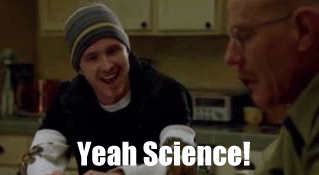
GO SCIENCE !!!
Well written @oliverb. The question is will you take the red pill?
I took both ;-)
One assumption that the simulation argument always makes is that there is a real world (or that there was), yet I personally consider it far more likely that we are in a simulation which does not actually reflect the "real world" completely. I think that it is far more likely that we are either a simplification of the real world, or the real world has a completely different set of natural laws, and we are either some sort of entertainment or artwork.
I think the best argument for why we are not in a simulation is this: Given that civilization has advanced to the point where we can create a simulated environment so perfect that it would fool us into believing it is reality.
Why wouldn't we have picked a better time period to recreate?
What kind of twisted mind would choose to relive this time period? What, was the Great Depression already checked out at the SIM library? Dark Ages not returned yet because "Ya just can't get enough of the Bubonic Plague"?
How about "because someone is trying to prove a point to somebody else" that requires these initial conditions?
Okay, here me out-
I am PRO simulation because I believe we try to replicate in this reality what is given to us outside of here. And I think we advance, almost subconsciously, in the direction of that reality. Almost like it happened first and we are witnessing its inception.
Actions:
Knowledge:
Desires:
Feelings:
I could go on but this bleeds into a book/set of blog posts I am working on that goes into the Unwritten Bible of Life, the only thing every living breathing experiences together.
One of the primary reasons for my belief though is something I've never heard everyone talk about or describe in detail the way I see it.
But in the dark or in certain amounts of light, I can see particles. Particles of light that I can only explain from a 3D modeling perspective that they are like artifacts that exist in this reality. I can see them whenever I want with a certain type of gaze. ESPECIALLY in the dark. They flow and have their own motion - yet can be controlled and changed colors. I know that sounds odd and ruined my whole wall of text. But it's my truth, at least for me.